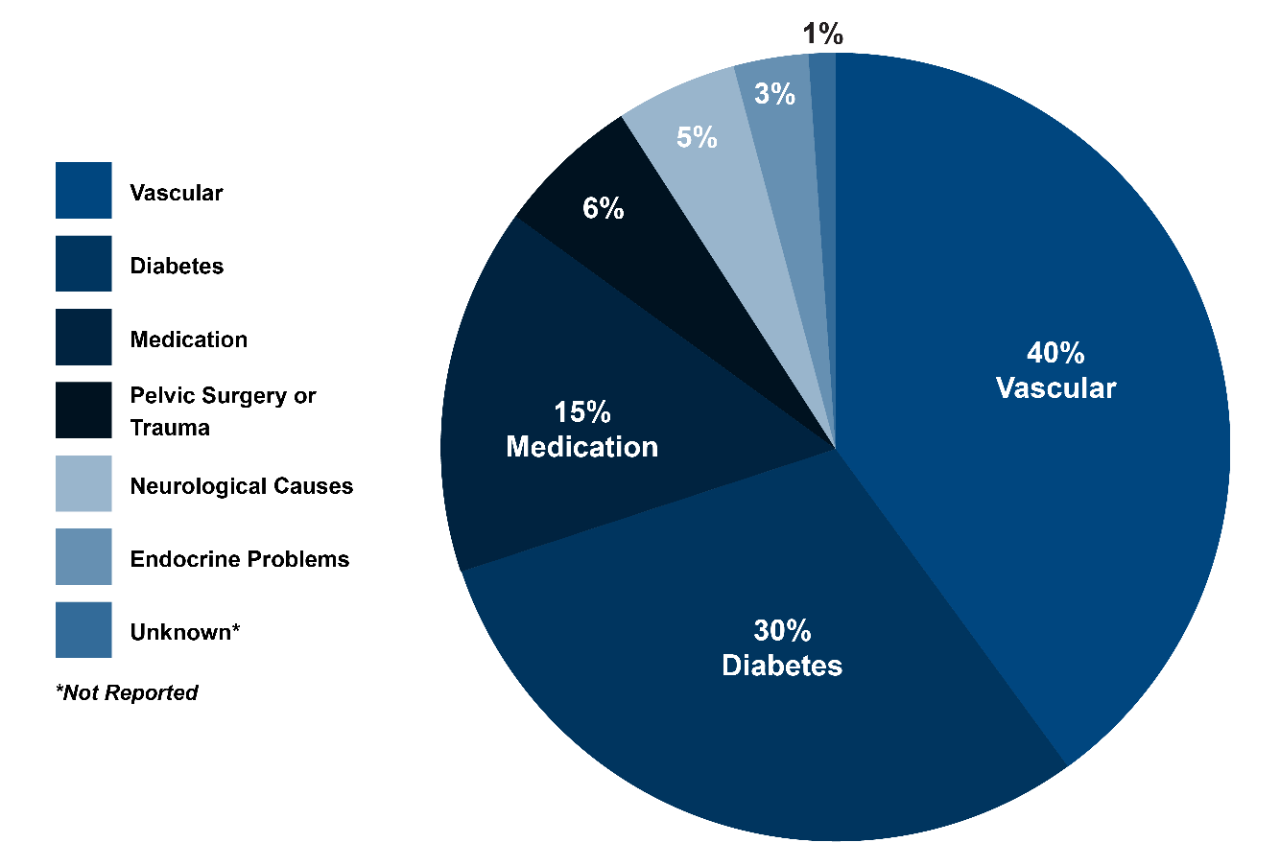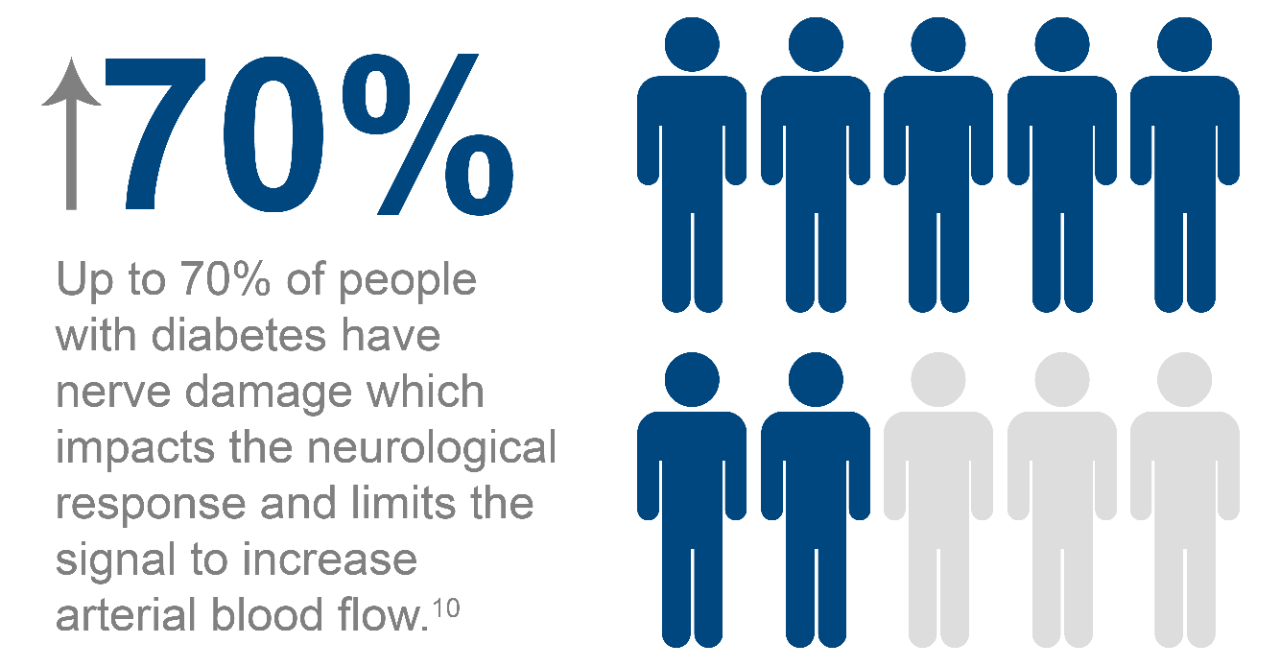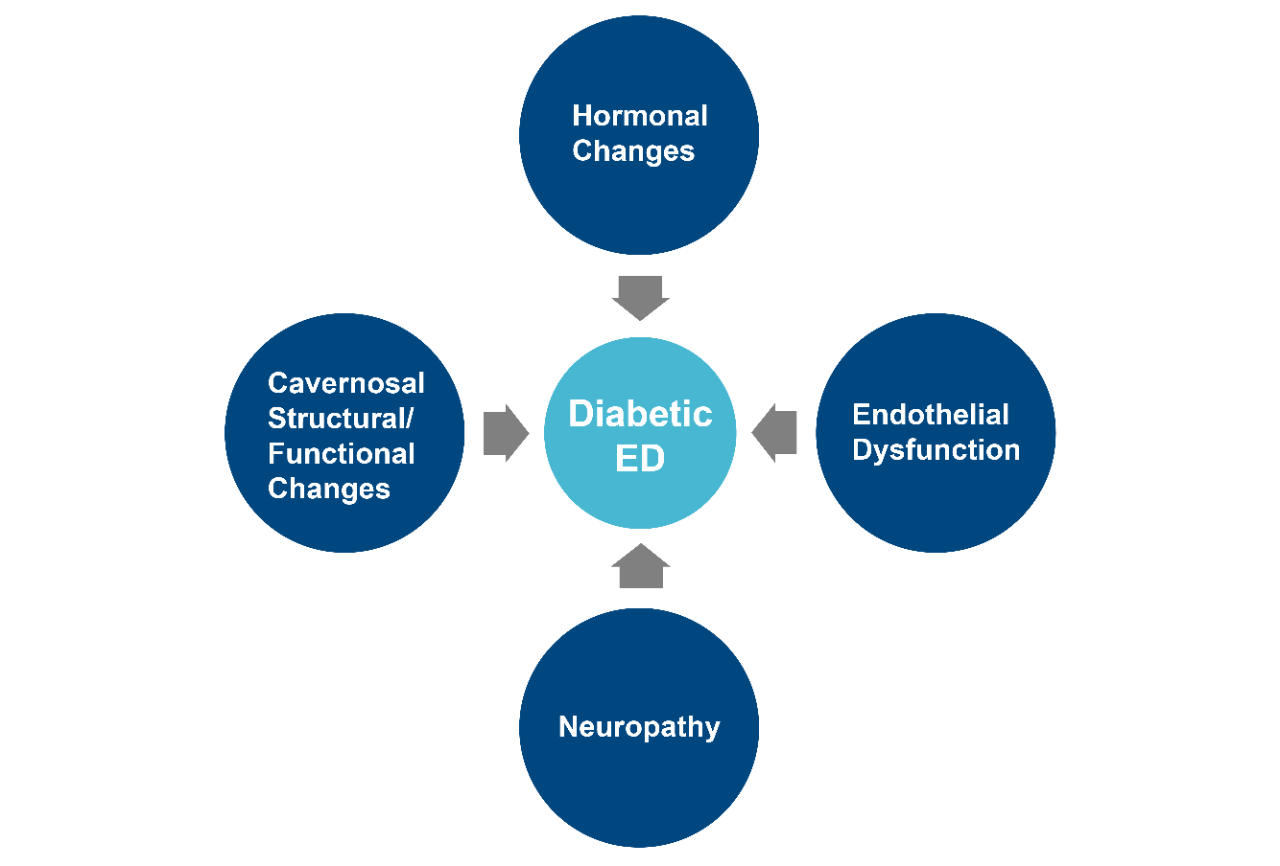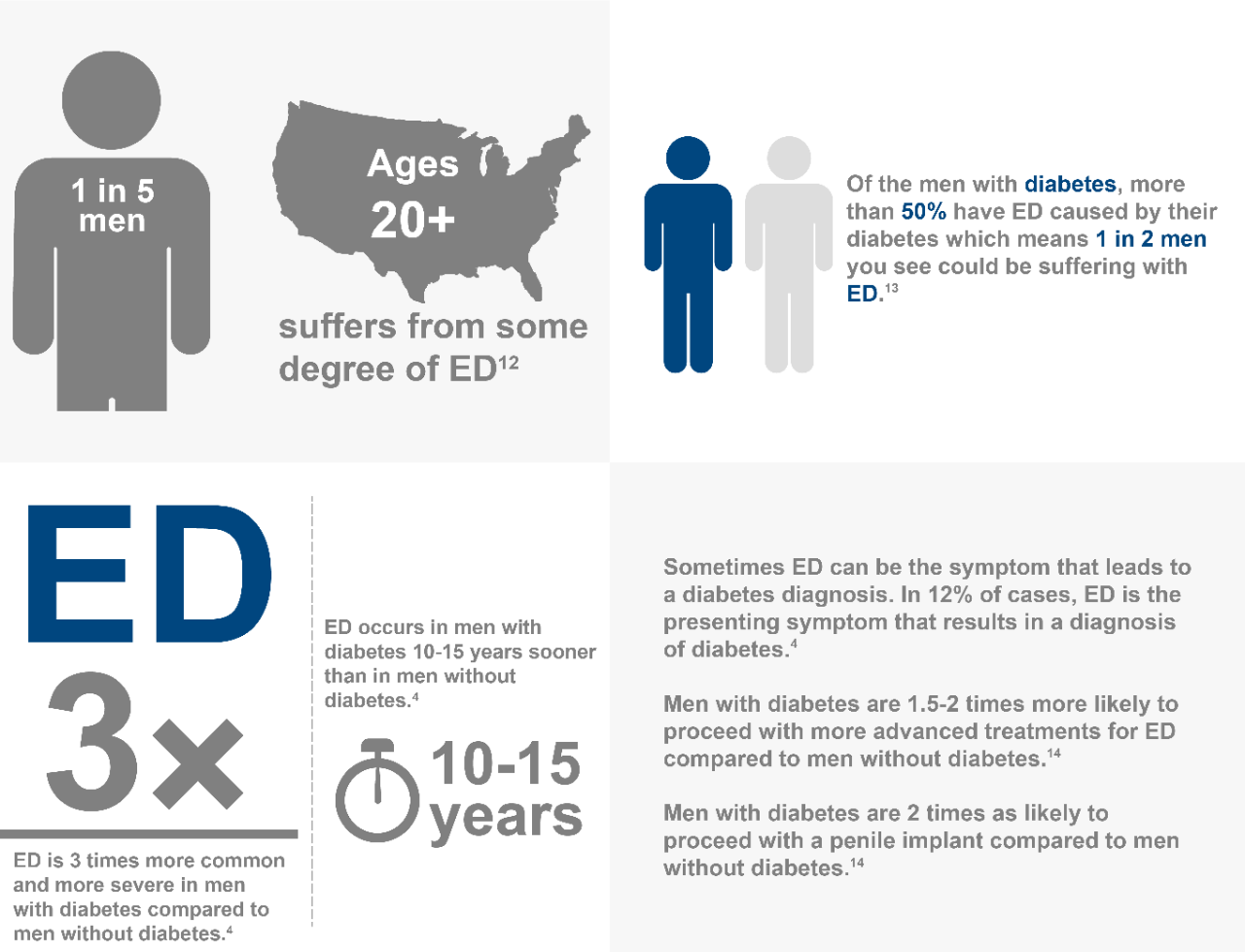Linking Erectile Dysfunction and Diabetes
What causes Erectile Dysfunction?

There are many physical causes for erectile dysfunction: vascular issues and diabetes account for 70% of the causes.
Medications, pelvic surgery, such as radical prostatectomy, trauma, neurologic disorders, and endocrine problems can also cause a man to experience erectile dysfunction.1
Why do men with Diabetes have Erectile Dysfunction?
Diabetes can affect the process of a normal erection.


- Age
- Diabetes duration
- Poor glycemic control
- Presence of microvascular complications
- Cardiovascular disease
- Renal disease
- Retinal disease
- Diabetic foot
How common is Erectile Dysfunction in men with diabetes?


Find an ED Specialist
Boston Scientific Men's Health treatment options could help a patient restore their self-confidence and change their life.